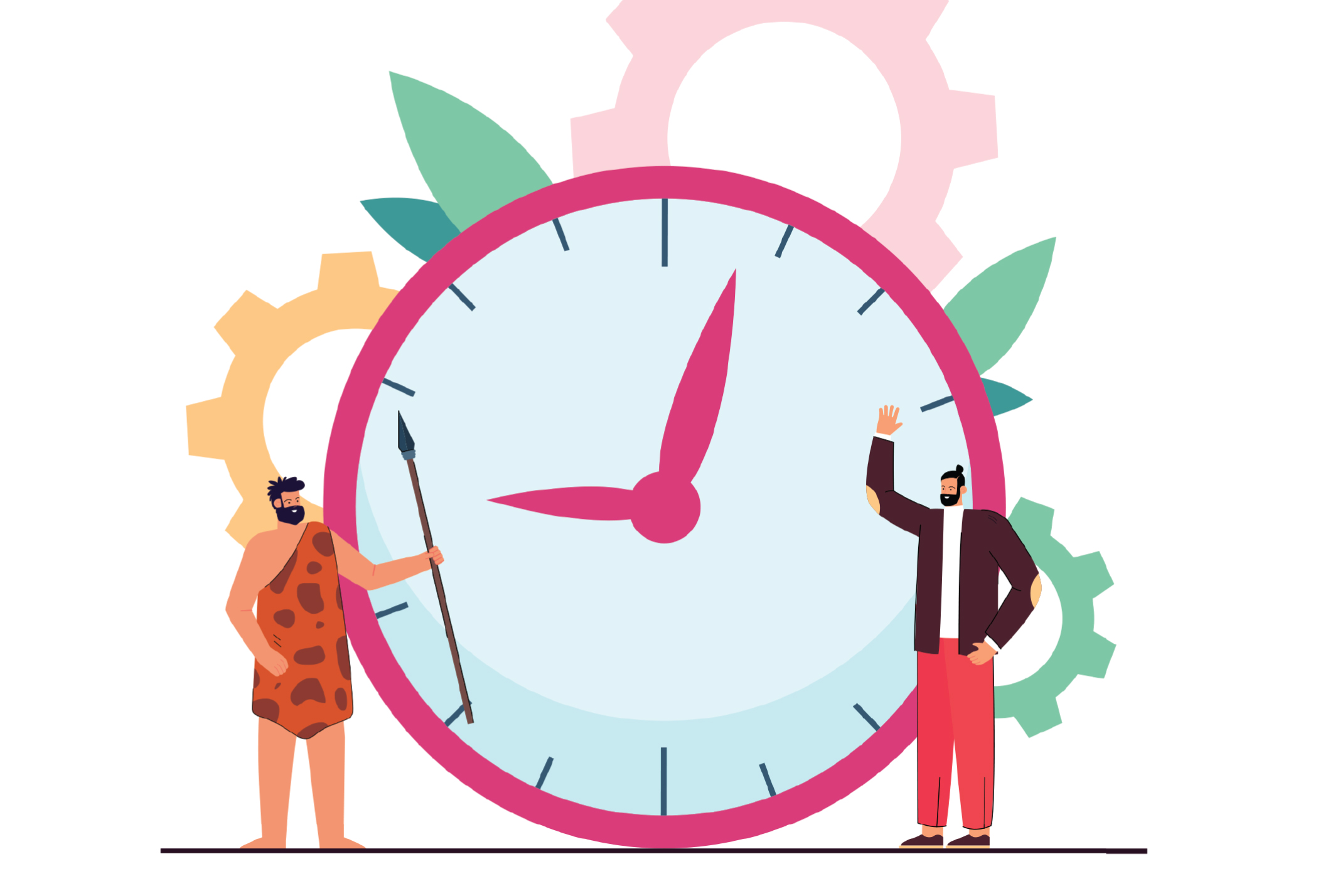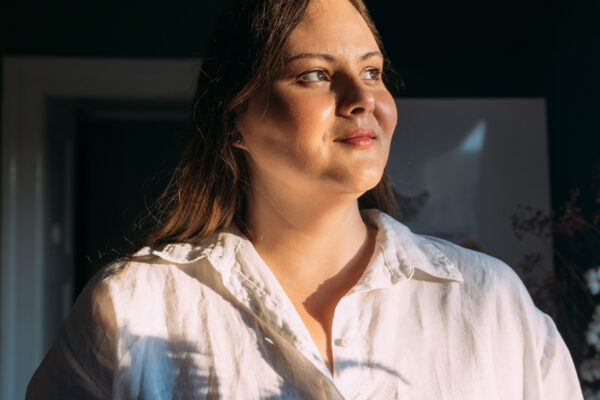Following the Example of our Ancestors
By Jamie Bussin and Dr. Jenny Powers PhD
Co-author of the new book On the Origin of Being, microbiologist Dr. Jenny Powers Ph.D thinks that despite our modern society with flashy technology, specialized supplements and fad diets, our fundamental approach to biohacking remains largely unconsidered: realigning ourselves to how evolution shaped us to live. We discussed how our ancestors lived in the present far more than we do on a recent episode of the Tonic Talk Show and Podcast. This is a digest of that discussion.
Dr. Powers says our ancestors lived in the moment out of necessity. It was a matter of their survival.
The environment that we live in today is vastly different from the one that we evolved in. It changed so rapidly once the agricultural revolution occurred and then, especially since the industrial revolution 200 years ago, that our genes, our bodies have not had time to evolve and adapt to this modern world. According to Dr. Powers, “we’re basically running hunter-gatherer software in a world that looks nothing like what our hunter-gatherers, our ancestors, faced, and so we’re in discord.”
This phenomenon is the “evolutionary discordance” hypothesis. Our bodies and our environment are mismatched, and so, because they’re mismatched, we experience pathology. Most of what we go to the doctor to treat are diseases of modernity; diabetes, heart disease, obesity, or mental health issues such as depression and stress and anxiety.
What do we know about our ancestors’ lifestyle? According to Dr. Powers our ancestors’ work -i,e, hunting and gathering- was woven into their lives. And, based on studies of modern groups that survived into the present, they only worked at food acquisition 12 to 19 hours a week. They were content to work, hunt and gather what they needed, no more so they had sufficient nutrition. They also didn’t have any material needs. They weren’t defined by how much they had or their possessions. Because they didn’t want more, once their work was done, they could do other things. They could enjoy life, relax, rest, and visit with people.
There’s a misconception that our ancestors had brutal lives that were hard all the time. There were hunter-gatherer groups that had difficulties – like those who survived into the present, who were pushed into the worst environments for resources. But when we were spread all over the world, humans existed in the most fertile parts of the world. Resources were so much more abundant and so our ancestors were able to meet their needs and then enjoy their lives.
Life Expectancy: We think that our Stone Age predecessors had lower life expectancy. To some extent that is true. Excluding childhood mortality, communicable diseases, and accidents that decreased the life expectancy average quite a bit, Stone Age adults who lived into their midlife and late life, enjoyed lifespans very similar to our current lifespan.
Nonetheless, Dr. Powers prefers to focus on quality of life. “But this is the thing. So our current lifespan is 76 years or so, the average. How many of those years are actually a good life? How many of those years do you spend disease-free, able to do what you want to do? If you take into account all these diseases of modernity, the life expectancy, the good life expectancy is only about 62 years. I think the misconception is that they lived really short lives. Yes, some of them did, but the ones who did live and survive some of these more dangerous times, lived very well into their 70s and were healthy and contributing members of their group.”
Our ancestors didn’t sit at a desk staring at a screen eight hours a day. They moved. They walked, they ran, they dug, they carried things, they threw things. They didn’t sit, they squatted. They had fitness and flexibility and as they aged, that fitness and flexibility was maintained.
How they approached their work (hunting and gathering) was different. They brought elements of play into their work. They worked as a community. They were mentally connected to their environment. There were so many plants and so many animals and so many different things that somebody needed to know in order to survive, that it was very mentally challenging.
Stress and Living in the Moment: While there was certainly stress when they were hunting an animal, they were otherwise living a low stress existence. Says Dr. Powers, “They were existing in the present moment, they weren’t worried about the future, they didn’t have anxiety. They didn’t really store food, so they kind of just met their needs. So I really feel like their brains and bodies were just attuned to that present moment and their needs in that present moment.”
Concepts of Time: Today we have a linear concept of time. But our ancestors had a circular or cyclical view of time; that things would always come around again. Because of the way that they hunted and gathered and then consumed whatever they got, they existed in an immediate return economy. They worked to meet their needs and then they could rest and play.
Conversely we exist in a delayed return economy which is future-oriented. You plant the seeds and you harvest six months later. You work now, you get a paycheck a month from now. Because we’re future-oriented we become obsessed with time and its passing and its impending arrival and it causes anxiety.
Which all begs the question, how can we live our lives as we evolved to do?
Dr. Powers suggests being more present and being more mindful. Mindfulness and meditation have a direct effect on lowering our stress levels, particularly at work. If you’re mindful at work, you can concentrate on the problem or issue at hand. Instead of worrying about “what is due next week?” ask “what are my priorities right now?” Mindfulness will help you make better decisions. You’ll be able to communicate and be more engaged. If your mind is not in an anxious fight or flight kind of state, you may exhibit even more creativity and efficiency.
Being present allows us to rest, which is important too. Says Dr. Powers, “It’ll also help us recognize the needs of our bodies. We are so out of tune with what our bodies need that we don’t catch the cues, or if we catch the cues, we ignore them.
Lastly, Dr. Powers recommends having few material wants; living a more minimalist kind of life, means you don’t need to make as much money because you don’t need to keep up with the Joneses, you don’t need to have things.Your work does not define your worth. You know you work so you can meet your needs and then you can have more fun, more relaxation in your life…like our ancestors.




